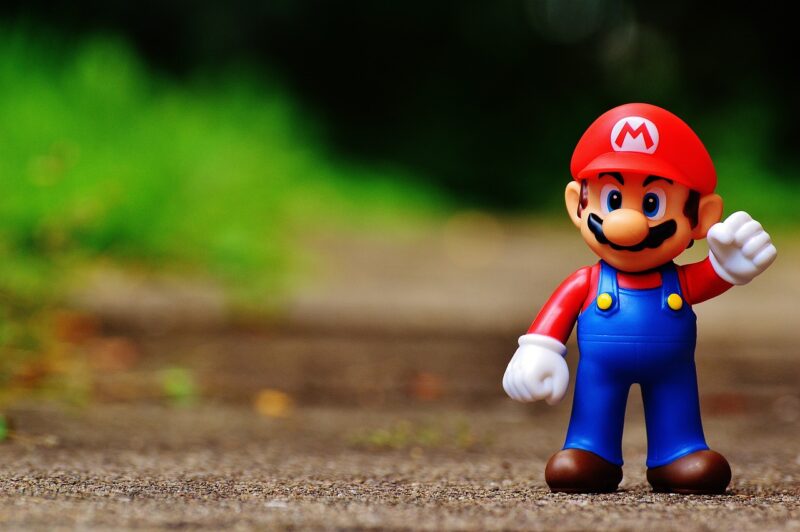Why Nostalgia Plays a Key Role in Video Game Remakes
November 14, 2024

Nostalgia is an emotional journey that reflects our longing for the past, often intertwined with cherished memories and experiences. In the realm of video games, this feeling has proven to be a powerful motivator, influencing both developers and players alike. As the gaming industry continues to evolve, the rise of video game remakes has become a defining trend, driven largely by the nostalgia of gamers who yearn for a return to their formative years.
video games have been a significant part of cultural history since their inception. With franchises stretching back for decades, the need to revisit these classics has never been more apparent. Game remakes provide an opportunity for developers to reinvent beloved titles with modern graphics, updated gameplay mechanics, and better storytelling, all while retaining the core essence that fans adored in the first place. Let’s explore the factors that make nostalgia such a compelling force in video game remakes.
1. The Emotional Connection to Gaming Memories
For many gamers, video games are not just entertainment but are tied to precious moments shared with friends and family. Whether it’s gathering with friends for a marathon session of “Super Mario Kart” after school, or defeating formidable bosses in “Final Fantasy VII” with siblings, these memories evoke strong emotions. Nostalgia taps into these experiences, providing a comforting sense of familiarity that makes playing remakes a joyous occasion. This emotional connection often leads to stronger engagement with the content, as players see themselves in the characters and worlds they revisit.
2. Enhancing the Original While Preserving the Essence
One of the fascinating aspects of video game remakes is how developers find a balance between modernizing gameplay and respecting the original. Classic games often follow principles and mechanics that may appear outdated by today’s standards. A successful remake addresses these issues without losing the charm that made the original unique.
For instance, the remake of “Resident Evil 2” revitalized its gameplay by introducing newer graphics and improved controls while retaining the story and terror that captivated players in 1998. The challenge lies in elevating the experience without alienating long-time fans, something developers strive to achieve with each remake.
3. Nostalgia as a Marketing Strategy
Nostalgia isn’t just an emotional trigger for players; it’s a powerful marketing tool for developers. Remakes often come with a pre-existing fanbase eager to relive their gaming experiences, and developers know they can harness this. Games like “Crash Team Racing Nitro-Fueled” and “The Legend of Zelda: Link’s Awakening” not only celebrated the original titles but also attracted a new generation of gamers curious to explore the roots of popular gaming franchises.
By marketing remakes with nostalgia in mind, developers don’t just create games; they create events that lead to significant discussions within both communities. This results in sustained interest in the title long after its release, ensuring continued sales and participation.
4. Revisiting Iconic Storylines and Characters
Many gamers are deeply connected to the narratives and characters they encountered in their early gaming years. With remakes, developers revive these elements, often expanding upon them or enhancing their storytelling with modern techniques. A prime example of this is the “Final Fantasy VII Remake,” which gave fans a chance to engage with beloved characters like Cloud Strife in a deeper, more emotional context.
Not only does this provide nostalgia but also a fresh perspective on familiar tales, allowing fans to explore new dimensions of characters they’ve adored for years. Additionally, by tailoring the experience to reflect current societal trends and values, remakes can resonate with modern audiences without losing their roots.
5. The Community Aspect of Remakes
Nostalgia also plays a key role in fostering community engagement around video game remakes. As players share their experiences, opinions, and ultimately their nostalgia for the original, conversations ignite within communities through platforms like Twitch or Discord. Gamers often come together, revisiting classic moments and sharing new discoveries as they experience remakes together.
This collaborative aspect thrives, creating unique social experiences around games. Fans engage in discussions about improved gameplay mechanics, favorite characters, and shared memories, reinforcing the emotional ties that memories hold.
Conclusion: Nostalgia in Motion
As we venture further into the future of gaming, the role of nostalgia in video game remakes remains undeniably significant. It not only shapes the approach developers take in creating remakes but also influences how players engage with these experiences. The emotional connections fostered through gameplay help breathe new life into classic titles, ensuring that they continue to resonate with both older players and newer generations.
Nostalgia serves as a bridge between past and present, allowing gamers to relive their cherished memories while embracing enhanced experiences that can only come from modern technology. In the ever-evolving landscape of video games, one fact remains: nostalgia will continue to play a key role in the heartbeats of gaming’s future.








